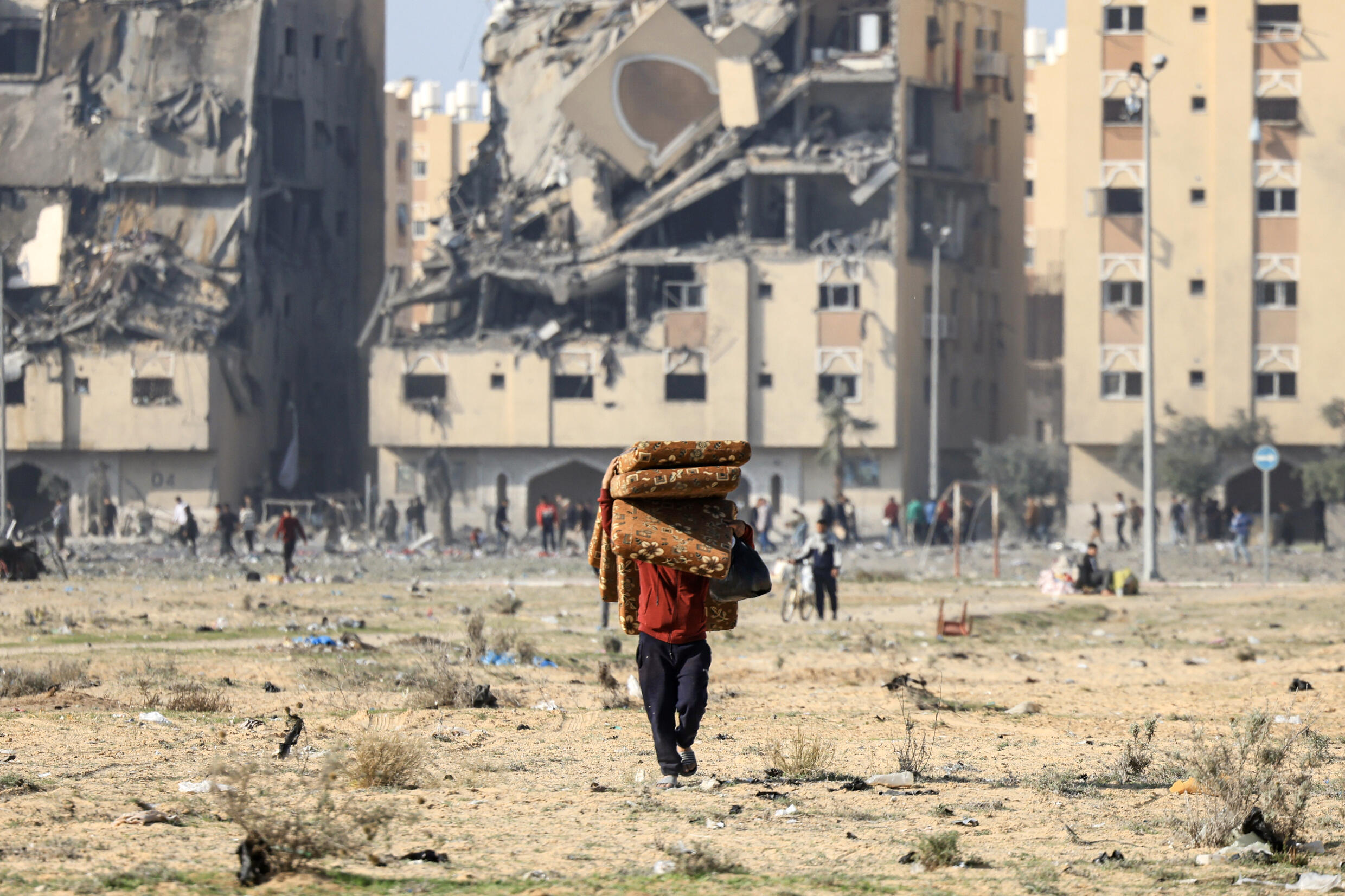Trump Qatar Strike Reaction: Israel Faces Rising International Pressure
The Middle East has once again been thrust into the center of global attention following reports of a strike in Qatar, allegedly linked to escalating tensions in the region. Former U.S. President Donald Trump has broken his silence on the matter, telling reporters he was “not thrilled” about the strike, a carefully chosen phrase that reflects both political calculation and personal style. His remarks arrive at a moment when Israel is facing mounting international pressure over its military actions, raising complex questions about diplomacy, regional security, and the role of great powers in an increasingly multipolar world.
This article unpacks Trump’s reaction, the nature of the strike, the broader implications for Israel, and the reverberations across global politics.
Trump’s Deliberate Language: Why “Not Thrilled”?
His choice of words reflects several considerations:
Balancing Act: Trump has long branded himself as pro-Israel, often touting his administration’s recognition of Jerusalem as Israel’s capital and the Abraham Accords. Criticizing Israel too strongly risks alienating his base, many of whom are staunchly pro-Israel.
Political Timing: With U.S.specific policy changes.
Echoes of Past Statements: Trump has used similar phrasing in the past when walking a fine line on foreign conflicts. For example, he often said he was “not a fan” of endless wars but avoided pushing for immediate disengagement.
Thus, “not thrilled” becomes a political tool—a way to express unease without sparking a full diplomatic rift.
The Strike in Qatar: A Strategic Flashpoint
While the exact details of the strike remain under scrutiny, analysts say it underscores the volatility of the region. Qatar, long seen as both a mediator and power broker in Middle Eastern politics, has walked a careful tightrope between Western allies, Iran, and Islamist factions.
military hub in the region. Any military action within or near its borders risks inflaming tensions with Washington and NATO allies.
Energy Markets at Stake: As one of the world’s largest exporters of liquefied natural gas (LNG), instability in Qatar has ripple effects on global energy prices, particularly in Europe and Asia.
Israel’s Strategic Calculus: If Israel is indeed tied to the strike, it would reflect an aggressive extension of its campaign against regional adversaries, particularly those it sees as funneling resources to Hamas and Hezbollah.
International Pressure on Israel
Israel’s military actions have increasingly drawn global condemnation, particularly as civilian casualties rise in Gaza and beyond. The Qatar incident compounds this pressure.
European Reaction: EU leaders have called for restraint, warning that unchecked escalation threatens diplomatic ties and trade relationships. Some governments are considering sanctions or weapons embargoes if the conflict deepens.
Middle Eastern Response: Nations such as Turkey, Iran, and Jordan have sharply criticized Israel, accusing it of destabilizing the region. Even traditionally quieter Gulf states are voicing disapproval, with Qatar itself demanding accountability.
United Nations Involvement: The UN Security Council has convened emergency sessions, though consensus remains elusive due to divisions between Western powers and Russia/China.
Israel, long accustomed to criticism, now faces a more united front of global disapproval, which could affect both its military freedom of action and diplomatic standing.
Trump vs. Biden: A Tale of Two Responses
Trump’s carefully hedged statement contrasts with President Joe Biden’s more traditional diplomatic approach.
Biden’s Position: The Biden administration has expressed “deep concern” over the strike and reaffirmed the U.S. commitment to Israel’s security while urging de-escalation. Critics argue this amounts to giving Israel a free pass.
Trump’s Advantage: By distancing himself just enough from Israel’s actions, Trump positions himself as a leader who can balance strength with restraint—appealing to voters weary of foreign entanglements but still supportive of Israel.
Campaign Implications: Trump’s comments may resonate with key constituencies in swing states, particularly evangelical voters, while also signaling to moderates that he’s not a blind supporter of every Israeli military move.
Qatar’s Dilemma: Mediator or Target?
Qatar has cultivated a role as a mediator in Middle Eastern conflicts, often hosting talks between warring factions. The strike challenges this role and raises questions about its future.
Mediator Status at Risk: If Qatar is increasingly seen as a target, its neutrality may be compromised, weakening its credibility in brokering peace.
Security Concerns: Doha may seek greater security guarantees from the U.S. and NATO, potentially expanding American military presence in the Gulf.
Domestic Pressure: Qatar’s leadership faces pressure from its own citizens, who may see the strike as a humiliation or a sign of vulnerability.
Israel’s Strategic Justification
From Israel’s perspective, strikes beyond its borders are often framed as preemptive measures against existential threats. Analysts point to several justifications Israel may invoke:
Regional Deterrence: By striking outside its borders, Israel sends a message of deterrence to adversaries.
Shaping Diplomacy: Military actions can be used to gain leverage in ongoing diplomatic negotiations.
However, such strategies often backfire by alienating allies and drawing international condemnation.
Global Ripple Effects
The fallout from the Qatar strike extends far beyond the Middle East.
Energy Prices: European energy markets, already strained by the war in Ukraine, are rattled by the possibility of disruptions in LNG supplies.
U.S. Politics: Trump’s reaction feeds into the broader debate over America’s role in the Middle East, splitting Republicans between interventionists and isolationists.
Great Power Competition: Russia and China are seizing on the situation to criticize U.S. “double standards,” positioning themselves as defenders of sovereignty against Western interventionism.
Humanitarian Dimension
Beyond geopolitics, the human toll cannot be ignored. Reports suggest casualties from the strike included both military and civilian victims. Human rights organizations have called for independent investigations, emphasizing the dangers of escalation in a densely populated region.
For many observers, Israel’s military strategy appears increasingly untenable in the face of global scrutiny.
Looking Ahead: What Comes Next?
The situation remains fluid, but several scenarios are possible:
De-escalation via Diplomacy: Qatar may leverage its diplomatic ties to broker talks, possibly with U.S. support.
Wider Regional Conflict: Retaliatory actions could draw in neighboring states, escalating tensions into a broader conflict.
Political Fallout in Washington: Trump’s remarks will likely fuel debate on Capitol Hill, with Democrats and Republicans using the crisis to score political points.
Shift in Israel’s Strategy: Facing unprecedented international pressure, Israel may scale back its operations—or, conversely, double down to assert strength.
Conclusion
Trump’s statement that he is “not thrilled” about the Qatar strike captures the essence of the current moment: a world on edge, a region in turmoil, and a former president leveraging ambiguity to his political advantage. Israel, meanwhile, finds itself increasingly isolated as international pressure mounts.
Whether this crisis becomes a turning point in Middle Eastern politics—or simply another flare-up in a decades-long cycle of conflict—depends on the choices made in the coming weeks. What is clear, however, is that the intersection of Trump’s political maneuvering, Israel’s military strategy, and Qatar’s precarious position has created a flashpoint with global consequences.



